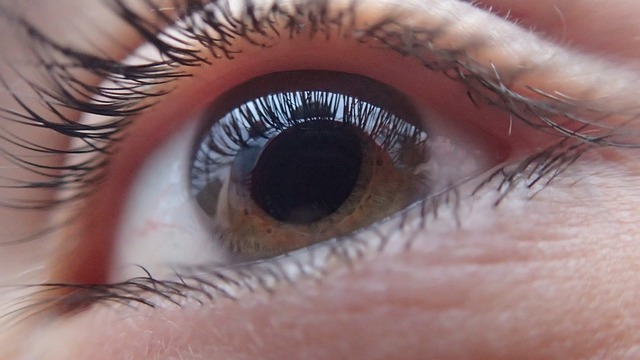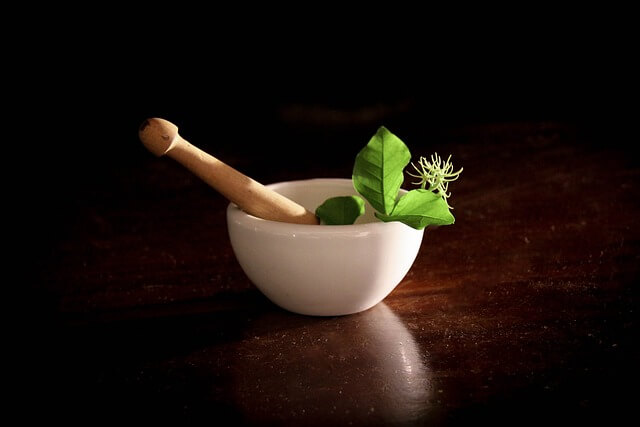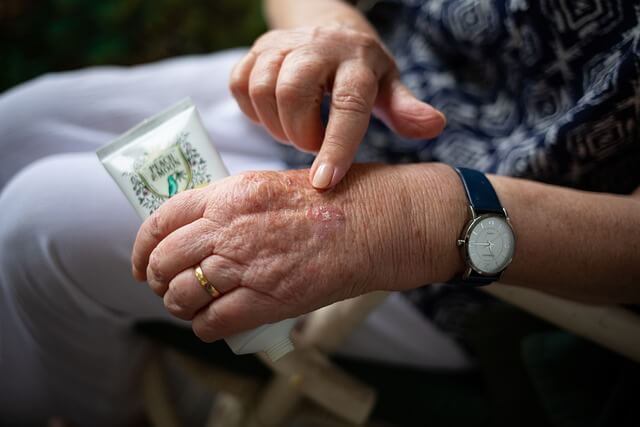The use of herbs is an important part of traditional medicine in Nigeria. Long before the introduction of Western medicine, people swore by its potency.
Passed down through generations, these natural remedies have been used to cure many chronic diseases.
However, today, western education and practices have questioned its claims and reports of healing powers. This has led to back and forth even in the global health community. Thus, the perennial question: Just how important is the use of traditional medicine in Nigeria?
In this blog post, we will delve into the practice of traditional herbal medicine in Nigeria, exploring its importance, methods, and the role it plays in healthcare.
Areas of Traditional Medicine Practice in Nigeria
In the country, the practice of TM is an ancient one. In one study, a total of 12 herbal medicines both crude and refined were used by the respondents, either alone or in combination with other herbal medicines.
The study found that ‘Agbo jedi-jedi’ was the most frequently used herbal medicine preparation, followed by ‘agbo-iba’ and Oroki herbal mixture. Before orthodox medicine, people were managing various health conditions using herbs from leaves, roots, minerals and the like.
The herbal and medicinal aspect of it has been used to treat chronic illnesses like diabetes, ulcers, high blood pressure, skin disease, piles, and epilepsy.
Most recently, people are finding it as a recourse for cancer, one study finds. However, it is no longer the standard practice, especially in urban areas with some people associating it with illiteracy, poverty and ignorance.
But thousands of people still swear by the efficacy of traditional medicine. They say the limitations of conventional medicine will always give room for roots and herbs to thrive. Many staunch believers in this form of medicine abound among the educated and the rich.
Also Read: How to Take Care of Your Health Against Prostate Cancer in Nigeria
The reason is not far-fetched. Apart from the acclaimed benefits, TM has deep cultural significance in the country.
Methods and Practices
Herbal Preparations
Herbal remedies in Nigeria are prepared using different methods, including decoctions, infusions, and poultices. Traditional healers carefully select, combine, and prepare plants to create potent remedies tailored to specific health needs.
Spiritual Elements
Another aspect of traditional herbal medicine often involves spiritual elements, such as prayers, incantations, and rituals. These practices are believed to enhance the efficacy of the remedies and address not only the physical symptoms but also the spiritual aspects of illness.
Oral Tradition
The knowledge of herbal medicine was mainly passed on through oral tradition. Apprenticeships still play a crucial role in transferring the skills, wisdom, and ethical aspects which are associated with TM.
Therefore it is received as a form of inheritance from one lineage to another, as a spiritual call upon one’s life or from mentorship. In earlier times, using it as a call made the practice some form of community service for minimal profit considerations.
Views of Global Institutions traditional Medicine
The rift between orthodox medicine and alternative medicine is an old one. On the one hand, believers in traditional healers claim that should be the main thing.
Orthodox medical institutions dismiss with the back of the hand, the claims of traditional medicine. The rift is not ending anytime soon. However, year after year, the gap seems to be closing. For instance, the 2018 Declaration of Astana on primary health care acknowledges the need to include the knowledge of traditional medicine in the delivery of primary health care.
The global organization has recommended that the long-standing practice, notwithstanding, countries should do so in a science-based manner to avoid patient harm.
This recommendation is made to ensure safe treatment and the needed evidence for the recommendation of traditional medicines in WHO guidelines. Traditional Medicine practitioners are also bent on making it known to the world their significance.
Their voices are beginning to be heard. Government and stakeholders are beginning to take note and mighty strides are being made in the meeting rooms.
The WHO is beginning to support the integration of traditional medicine into mainstream health systems. Reactions to the idea have been different from enthusiasm to outright skepticism.
In 2021, calls were made to the Federal Government to support companies like Pax Herbal who were making strides to stem the tides of COVID-19.
Similar companies are also registered with NAFDAC.
The Importance of Traditional Herbal Medicine in Nigeria
Traditional medicine has a lot to offer in terms of cost-saving, accessibility and promise.
Accessibility
In many rural areas of Nigeria, where access to modern healthcare facilities is limited, traditional herbal medicine serves as an available and affordable alternative.
Local communities often rely on the knowledge of traditional healers for primary healthcare needs. In a study, 24.1% (1371/5686) of women reported using traditional medicine at childbirth.
The study found that these women had less education, accessed antenatal care less, experienced more family violence and were less likely to have birth certificates for their children.
Also, in the same study, 11.3% (615/5425) of young children with diarrhea were taken to traditional medical practitioners.
“These children were less likely to receive BCG, to have birth certificates, to live in households with a more educated head, or to use fuel other than charcoal for cooking” according to findings.
Also Read: 7 Foods and Drinks to Avoid if You Have Arthritis
Cultural Identity
Traditional herbal medicine is deeply intertwined with the cultural identity of many Nigerians. It represents a source of pride and a connection to ancestral traditions, fostering a sense of belonging and continuity across generations.
This form of medicine includes prayers and spiritual factors which are still in practice. People venture into it as a call from deities or higher spirits. Then they hand over the practice as an inheritance to their children. The mode of entrance can also be in the form of apprenticeship.
The elderly and healers have different names across various tribes.
In Yoruba culture, they are called Babalawo. The Igbos call them Dibia while the Hausa tribe call them Boka.
Complementary to Modern Medicine
Modern medicine has made significant strides in Nigeria. It has also gained prominence in the country.
That notwithstanding, TM remains a part of complementary medicine. Practitioners argue that since orthodox medicine does not have all the answers, they can intervene in the areas where it is weak.
As such, we see this alternative sector of healthcare in certain areas. This includes social psychiatry and psychosomatic illnesses. The practice also covers physical therapy like bone-setting and maternal care.
For instance, Snakeroot (Rauwolfia vomitoria) is traditionally used for treating hypertension, stroke, insomnia, and convulsions.
Clove basil is employed for treating diarrheal diseases while the seeds of Grapefruit are effective in treating urinary tract infections that are resistant to conventional antibiotics.
The same can be said of pure honey which has been observed to heal infected wounds faster than eusol.
Shall we talk about the effectiveness of dried Papaya seeds, the anti-inflammatory effects of Bitter kola and the potency of Aloe Vera gel? These have been found medicinal in the treatment of intestinal parasites, osteoarthritis, and scabies respectively.
As in other places, traditional birth attendants also use plant extracts to aid childbirth. Many Nigerians choose to integrate both systems, seeking the best of both worlds to address their health concerns. The knowledge in these areas is deep and broad with many finding succor in age-long practices.
During the Covid-19 pandemic, Nigerians were again reminded of the vital role of traditional medicine. These practitioners tapped into the reserves of their knowledge to offer intervention to the “COVID fever” which spread across the world.
Nigerians used their native sense to incorporate leaves such as neem, lemon grass for prevention and relief from symptoms. The herbal companies were not left out and the attention of the government was called to the importance of their place in health services.
Challenges and the Way Forward
There are problems associated with the administration of traditional medical care.
Institutions have pointed to issues of diagnosis, measurability of its drugs, dosage, preparation, documentation, preservation, potency and side effects.
On-the-spot diagnosis is common among tealers without rigorous attention to age, and the unique needs of patients. In other words, there is a lot of guesswork in the field.
Experts have also argued that those who practice this form of medicine refuse to admit their shortcomings. There are also concerns about the quality of plants used.
Although the gospel of TM is spread daily by those who claim to have witnessed its potency, this lack of documentation and hearsay evidence is a big dent on the credibility of traditional herbal medicine in Nigeria.
Many believers in herbal care say business, profit and politics underline the resistance by “Big Pharma”.
But that is not to rule out the fact that there are many charlatans that cause more harm than good. Thus, the lack of regulation is one of the challenges faced in this sector of medicine.
It is a regular sight to see the marketers of the herbs in motor parks, markets, roadsides and buses. This is because despite the ban against the use of non-standardized products by the government, the herbs are now being packaged for sale.
The practice has gone beyond local concoctions to advanced marketing practices and branding. Because of this, professionals have called for regulations and standard practice in the delivery of herbal services.
Overall, the importance of traditional herbal medicine in Nigeria has been recognized.
Governing health bodies like the National Agency for Food and Drugs Control have okayed the use of registered company documents. Most of these companies like Pax herbal have shown a commitment to research and biotechnology.
Also Read: How to Naturally Cure Blurry Vision in Nigeria
Conclusion
Traditional herbal medicine in Nigeria no doubt occupies a prominent and important place. The mainstream sector and traditional medicine can co-exist for the good of all.
Increased collaboration can bridge gaps, promote knowledge exchange, and enhance overall healthcare delivery in Nigeria.
Healthy collaboration and standardized practices can harness the strengths of both approaches to build a robust and inclusive healthcare system.
As efforts are being made to establish guidelines that ensure the safety of herbal remedies, you should make informed choices. This means access to accurate information about both traditional and modern healthcare options are important.










